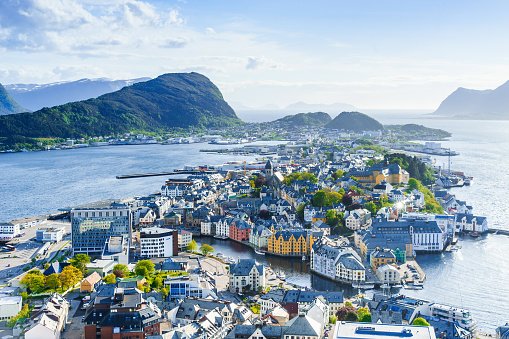
Norway's outstanding educational system has made it the envy of many nations worldwide. The nation offers free education from school to university levels and has made education a fundamental right for all of its citizens and permanent inhabitants. In this essay, we examine the numerous elements that have contributed to Norway's prosperity in order to understand how it accomplished this amazing feat.
Government Investment in Education
Government funding is one of the key elements that have made it possible for Norway to offer free education. The Norwegian government understands the value of education as a cornerstone for societal and economic advancement. As a result, the government makes significant investments in education to guarantee that its people have access to high-quality education.
Preschool through higher education are all included in Norway's extensive educational system. With an average expenditure of 6% of the nation's Gross Domestic Product (GDP), the government devotes a sizeable percentage of its budget on education. Norway spent over $24 billion overall on education in 2020. With the help of this investment, the government is able to offer all pupils, regardless of their circumstances, an excellent education.
Furthermore, Norway has created a flexible and adaptive educational system that guarantees students obtain a thorough education that is pertinent to the changing global environment. To guarantee that pupils obtain a top-notch education, the government makes investments in infrastructure, contemporary technology, and teacher training. Norwegian students routinely perform highly in international education rankings like the Programme for International Student Assessment, demonstrating that this investment has paid off (PISA).
High Tax Rates and Oil Revenue
The country's education system has benefited greatly from Norway's high tax rates. The tax-to-GDP ratio in Norway, which is among the highest in the world, is about 39%. The government can spend in a range of social services, including education, thanks to the high tax revenue.
The Norwegian government utilizes the tax money to pay for welfare and healthcare as well as other social services like education. The budgetary commitment of the government to education is clear from the fact that it receives a larger share of the budget than other sectors.
Furthermore, Norway has had the good fortune to profit from the oil sector, which has helped Norway finance its educational system. With oil production accounting for over 40% of exports, the nation's economy has benefited greatly from the sale of its oil. The government has made sure that its residents have access to top-notch education by using the money made from the oil sector to pay for it and other social services.
Prioritization of Education
Another important element in securing free education has been Norway's priority of education. The Norwegian government has prioritized education in its programs because it considers it to be a fundamental right of all citizens and permanent residents.
All people, especially those from low-income families and minority groups, now have access to education thanks to government policies that have been put in place. Norway ensures that education is not just accessible but also inclusive by offering free education to all students, including those from abroad.
Also, the Norwegian government offers financial aid to students to help them with living costs while they are in school. Both Norwegian and international students can benefit from this assistance, which lessens the financial strain on both the students and their families.

Benefits of Free Education
Norway's free education system has many advantages and has made a substantial contribution to the nation's social and economic progress. First off, the availability of higher education to individuals from various backgrounds has enhanced social mobility in the nation. A workforce that is more educated and diversified as a result of the improved access to education has helped the economy of the nation.
Second, the country's inequality has decreased as a result of free education. One of the most important factors in reducing inequality is education, and free education has made quality education more accessible to students from low-income families. Students from underprivileged origins now have the same chances as those from wealthy families because to increasing access to education.
Furthermore, the availability of free education has enabled students to follow their interests without concern about the cost. Whatever they want to study, whether or not it will lead to a well-paying employment, is up to the student. The ability to follow one's interests has made the workforce more diversified as more people are pursuing jobs in a variety of sectors.
Additionally, Norway's economy has benefited from free education since it has produced a workforce that is well educated and skilled. Its internationally competitive workforce draws foreign investors and businesses, boosting economic growth and employment creation. Also, the government's investment in education has promoted research and innovation, strengthening Norway's position as a global leader in science and technology.
The fact that Norway has been able to offer free education to its citizens and long-term residents is due to a number of factors, including government investment, high tax rates, and the importance placed on education. The Norwegian government has made large efforts to guarantee that education is available to everyone because it understands the significance of education in its economic and social development.
Additionally, government measures make sure that education is accessible to minorities and low-income families, ensuring that it is inclusive. Increased social mobility, decreased inequality, and a highly qualified population that draws international investors and businesses are just a few of the many advantages of free education in Norway.
The education system in Norway serves as a role model for other nations, demonstrating how education spending can promote social and economic advancement. In order to establish a strong and affluent nation, other nations should place a high priority on education, as Norway has done.
Posted Using LeoFinance Beta
Posted Using LeoFinance Beta

